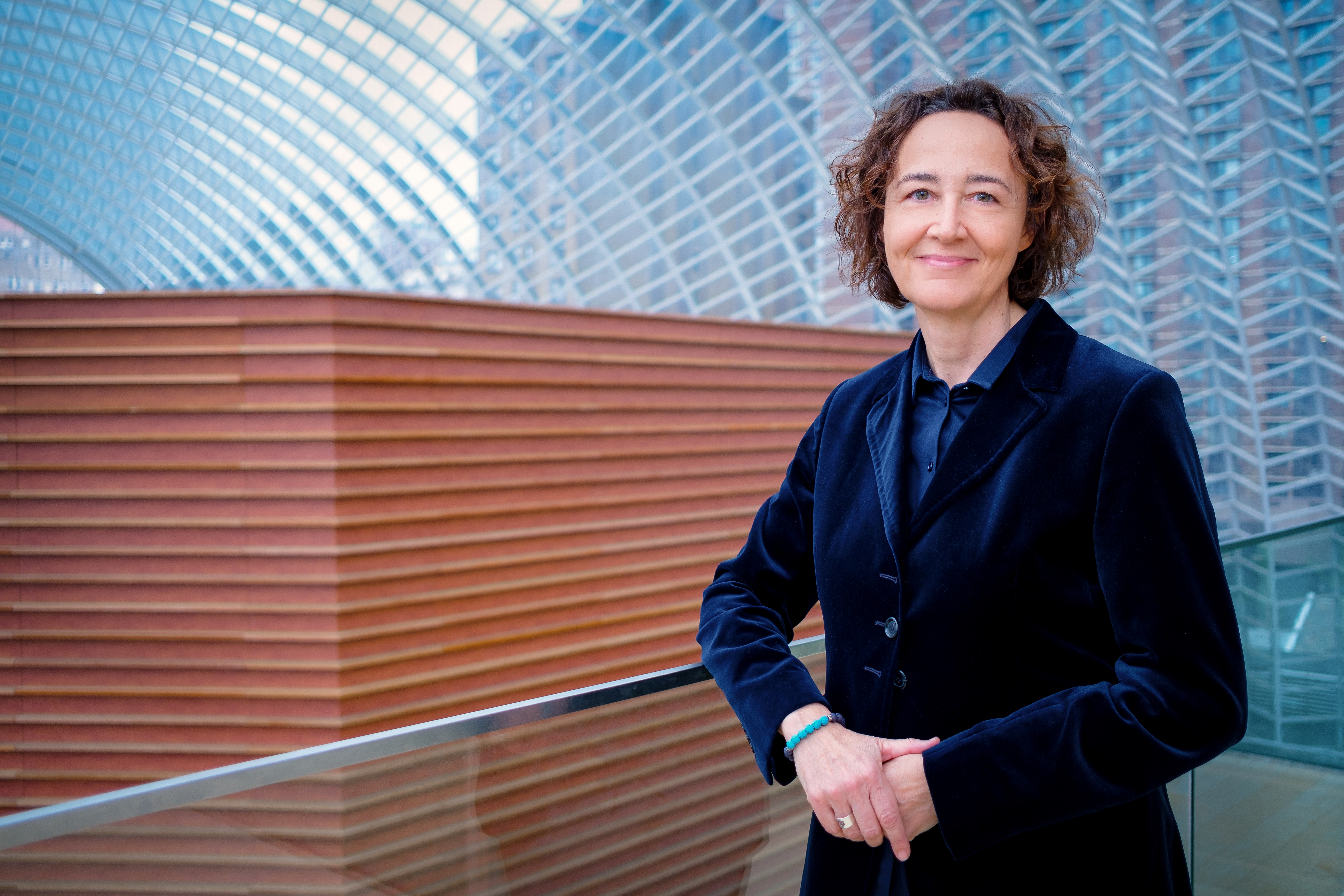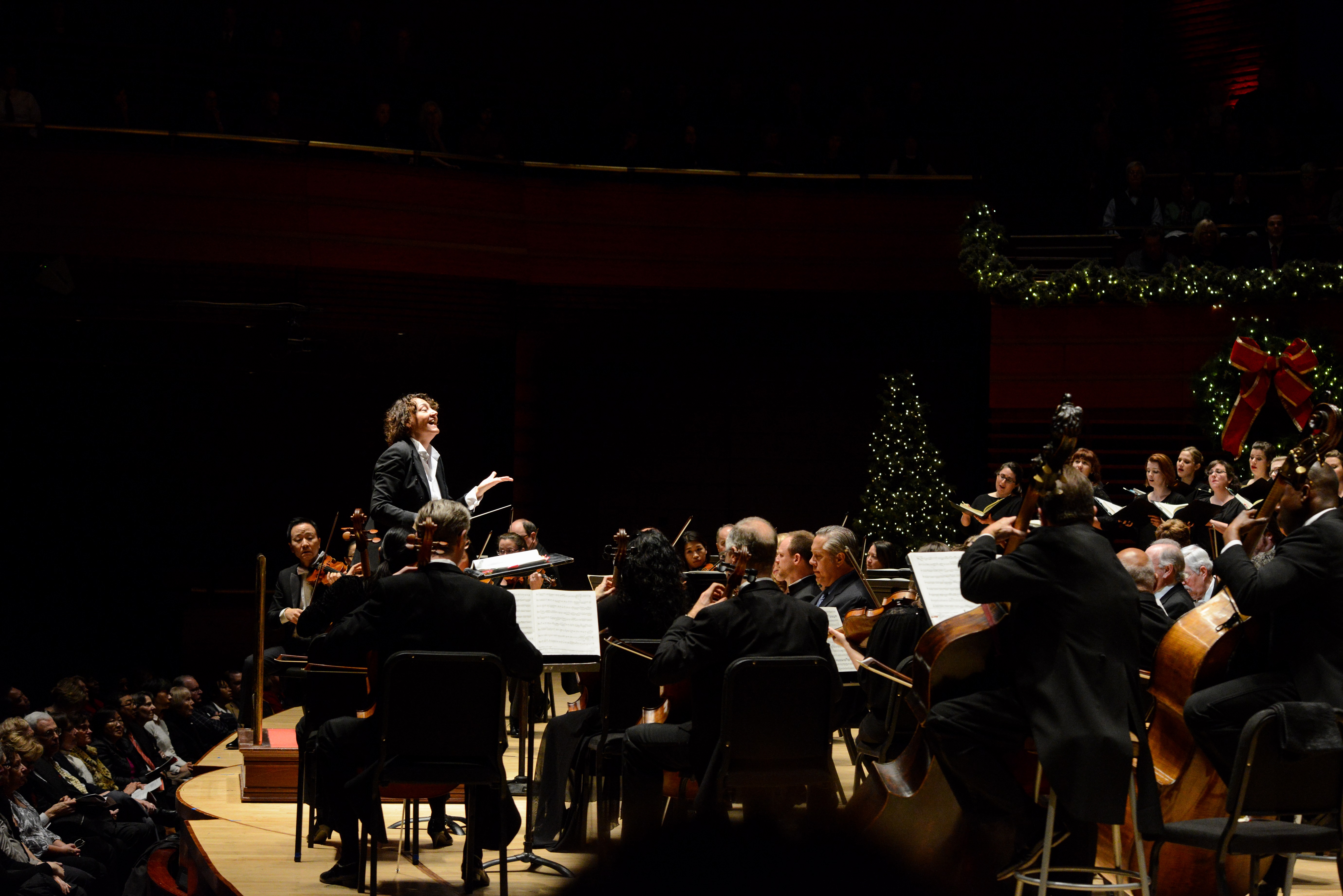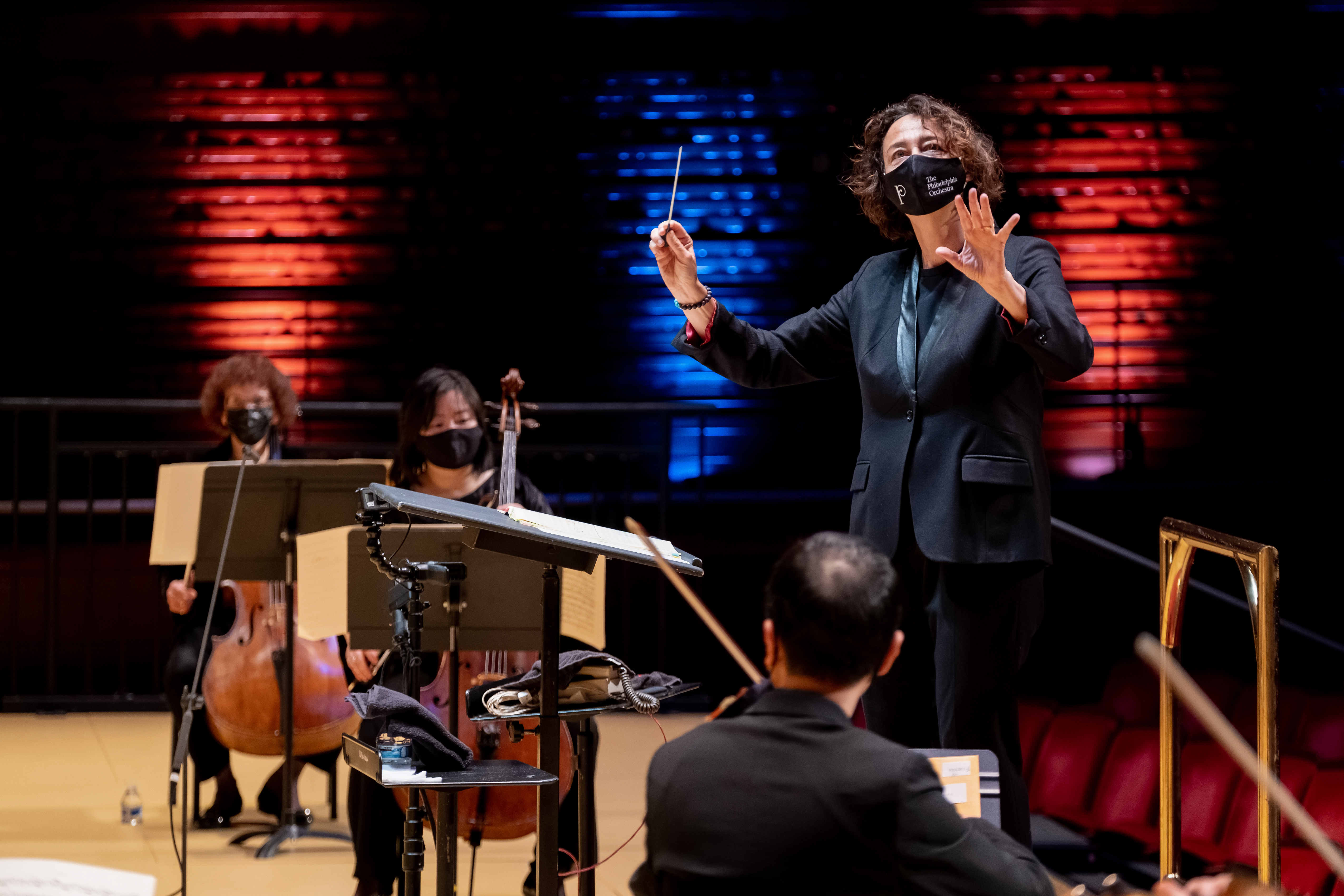Nathalie Stutzmann continues to blaze her own trail as a multidisciplinary musician and, starting this season, as The Philadelphia Orchestra’s principal guest conductor for the next three years. A commanding, charismatic, and beloved presence on the podium, Stutzmann made her Orchestra conducting debut in 2016 leading Handel’s Messiah—and has returned multiple times leading her core repertoire of Brahms, Beethoven, Wagner, Mendelssohn, and Tchaikovsky to wide acclaim. According to President and CEO Matías Tarnopolsky, “We are delighted to expand our relationship with Nathalie Stutzmann through this important appointment. We look forward to an ever-deeper exploration of her singular artistry and inspiring musicianship here at home, on the Digital Stage, in our communities, and beyond.”

Principal Guest Conductor Nathalie Stutzmann. Photo by Jeff Fusco
An internationally renowned conductor and contralto, Stutzmann recently made headlines by being named music director of the Atlanta Symphony beginning in the 2022–23 season—and becoming only the second woman in history to lead a major American orchestra. She is currently in her fourth season as chief conductor of the Kristiansand Symphony in Norway, and previously was principal guest conductor of the RTÉ National Symphony of Ireland from 2017 to 2020. She has also served as guest conductor for the Orchestre de Paris and the Royal Stockholm Philharmonic, among others. Born in Paris, she was admitted into the Ordre National de la Légion d’Honneur—France’s highest honor—at the rank of Chevalier in 2019.
From her longtime home in Geneva, Switzerland, Stutzmann reflected on her remarkable career and the “destiny” of officially joining the Philadelphia Orchestra family.
KAREN GROSS (KG): Why don’t you start by telling us about your journey with The Philadelphia Orchestra over the years, starting as a singer and leading up to your new role as principal guest conductor.
NATHALIE STUTZMANN (NS): I believe sometimes in life, there is no hasard [French for accident or chance]. There is a destiny, you know? I sang Mahler’s Symphony No. 2 with The Philadelphia Orchestra in 1997. That was also my first meeting with Simon Rattle, who conducted it and later became my mentor as a conductor. Also, the first time I received an e-mail from Simon saying he wanted to be my mentor, I was not singing with The Philadelphia Orchestra—but I was singing with Yannick Nézet-Séguin, who was not yet the music director at The Philadelphia Orchestra. So, it was like destiny—meant to happen. This is also one of the orchestras [where] I have a long relationship as a singer and as a conductor. Actually, that’s why I was nominated, because it came from a wish from the musicians to see me more often. And that was, of course, the best news of the year!
KG: This season, The Philadelphia Orchestra has really doubled down on its commitment to IDEAS [Inclusion, Diversity, Equity, and Access Strategies] as a central focus of its mission and programming. From your perspective, why is this important?
NS: An orchestra is like a micro-society, and I truly believe that these days it’s even more important for the Orchestra to represent the world and be part of the community. And Philly is a modern city with a lot of diversity. As a musician, I’ve always loved to approach a lot of diverse repertoire, and to explore and find pieces both old and new. This is also what we are trying to do [at The Philadelphia Orchestra] by performing music from Black composers that has not been played much. All of this is important.
And of course, as a woman conductor, I am myself representing part of the diversity. I think the Me Too movement helped people to realize that conducting was still totally a men’s bastion, and that the mentality could change. So there are lots of things happening, and people are questioning, and when you start to question it’s the start of the change.

Nathalie Stutzmann makes her Philadelphia Orchestra debut in December 2016, with Handel’s Messiah. Photo by Pete Checchia
KG: Can you give us a window into your path as an aspiring conductor?
NS: I always wanted to conduct. I grew up as a musician; I am a pianist, a bassoon player, and a cello player. And when I was a teenager, in a conducting class, it was terrible because I was a woman. They never gave me the baton, so I was just sitting and following. For me it was very clear that there was no way I could do something really big as a conductor at that time. Two years after this I won a big international competition as a singer. So, for me, the first wave [as a singer] was very obvious.
KG: But you clearly didn’t give up on your dream of conducting. What’s more, you even created a Baroque ensemble, Orfeo 55, where you sang and conducted simultaneously! What gave you the courage to pursue and even combine both of these paths?
NS: I am a free spirit. I need to discover and to explore, and I truly believe this makes you a richer artist. But of course, it makes your way more difficult. … Everyone said [about singing and conducting]: “It’s impossible, it will look horrible, it’s too tiring.” I followed my instinct and worked like mad, and Orfeo 55 became very successful. Then my conducting career took on such an important role, and I had to stop the ensemble. But it’s a wonderful memory, and it was a true joy to combine my two passions.

Nathalie Stutzmann leads The Philadelphia Orchestra in Beethoven’s First Symphony on the Digital Stage in January 2021. Photo by Jeff Fusco
KG: How does your singing influence your conducting?
NS: I think it’s what makes my conducting special. As a singer I have had to work on how to shape my instrument and every phrase, and how to create a full opera in a five-minute song. And of course, this is what you have to do as a conductor with a big symphony.
It’s also a joy to be able to sing a phrase to the Orchestra like I want to hear the phrase, instead of just using words. The Philadelphia Orchestra is very reactive to that. So there is a lot of singing during my rehearsals. I think the exchange between singers and instrumentalists is magic.
KG: What is something that you’re really looking forward to this season with the Orchestra?
NS: I’m looking forward to starting in December and just having some audience in the hall! I’m super excited by the programs we have coming up, which are very representative of my identity as a musician; Schubert, Mazzoli, Brahms, Tchaikovsky, and Prokofiev are really important composers for me. And I’m also very much looking forward to my first tour with the Orchestra in March 2022. Lastly, I am thrilled to be recording all the Beethoven piano concertos with Haochen Zhang, for release on the BIS label—my first recordings with the Orchestra.
KG: You keep such a busy schedule collaborating with orchestras around the world, while also continuing your singing career. I have to ask: Do you get any sleep?
NS: I love to sleep, and this is a bit of a problem with my schedule! But I am absolutely the queen of napping. I can nap anywhere, at any time.
Karen Gross (www.karengross.com) is a writer, singer, host of the She Rocked It podcast, and a proud Philadelphia native.